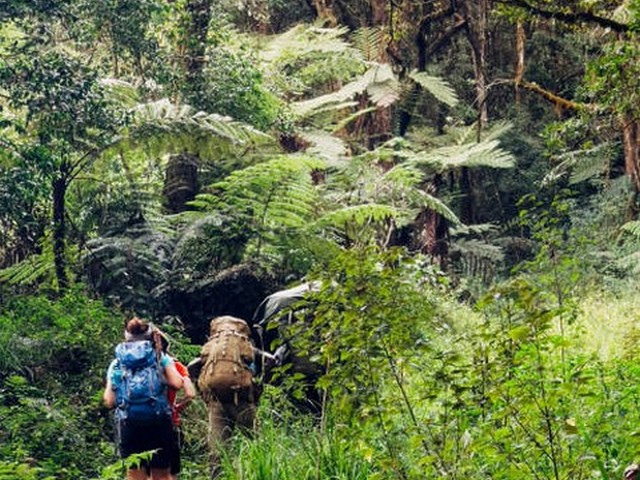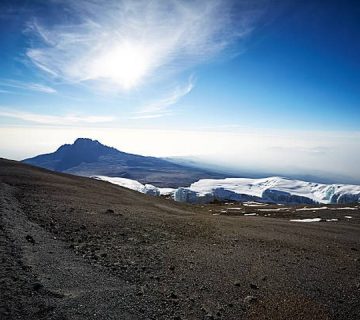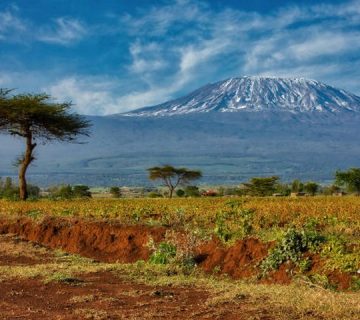How to Minimize Waste During Your Kilimanjaro Trek
Embrace the Beauty, Leave No Trace
Ascending the majestic slopes of Mount Kilimanjaro, you are greeted by the sheer splendor of pristine landscapes and awe-inspiring vistas. At Kilimanjaro Centre for Trekking and Ecotourism (KCTE), we believe that preserving this natural wonder is as important as experiencing it. In this detailed guide, we'll walk you through effective strategies to minimize waste during your Kilimanjaro trek, ensuring that future trekkers can witness the same unspoiled beauty.
Understanding the Impact of Waste on Kilimanjaro
The Fragility of an Ecosystem
Mount Kilimanjaro isn't just a mountain; it's a vibrant ecosystem that supports diverse wildlife and provides water and resources for local communities. The impact of waste, especially non-biodegradable waste, can be devastating. It disrupts wildlife, pollutes water sources, and mars the natural beauty, affecting both ecological balance and local livelihoods.
Why Minimizing Waste Matters
Every piece of trash irresponsibly disposed of on the mountain has consequences. Besides harming the environment, it can diminish the experience for other trekkers and potentially lead to restrictions on access to preserve the mountain's ecosystem. By minimizing waste, we protect the mountain and ensure it remains a welcoming place for all adventurers.
Strategies to Minimize Waste During Your Trek
Pre-Trek Planning: Pack Smart
- Eco-Friendly Products: Invest in biodegradable and eco-friendly toiletries. From sunscreen to soap, ensure that what you bring leaves as little impact on Kilimanjaro as possible.
- Packaging Reduction: Before your trek, remove unnecessary packaging from products and repack them in reusable containers. This not only reduces waste but also lightens your load.
- Reusable Water Bottles/CamelBaks: Ditch single-use plastic bottles. Opt for reusable water containers which can be refilled at designated points.
On The Trail: Practice Sustainable Trekking Habits
- Carry In, Carry Out: Whatever you bring, take it back down with you. Have a designated trash bag for collecting your waste during the trek.
- Stay on Designated Paths: Straying from the path can lead to soil erosion and plant damage. Keep to the trail to minimize your environmental footprint.
- Use Eco-Toilets: Whenever possible, use the eco-friendly toilet facilities provided along the route to reduce contamination.
Energy Conservation and Waste Reduction
- Solar Chargers: Rather than using disposable batteries, bring a solar charger for your electronic devices.
- Local, Organic Food: Opt for meals prepared with local, organic ingredients. This supports local farmers and reduces the carbon footprint associated with transporting food supplies.
Engaging with Local Culture and Economy Responsibly
Support Local: Purchase souvenirs and crafts from local artisans. This not only provides you with a unique memento but also supports the local economy and reduces the environmental cost of importing goods.
Educate and Influence: Share your sustainable practices with fellow trekkers. Promoting a culture of responsibility can magnify the impact of your efforts.
After the Trek: Continue the Advocacy
- Spread the Word: Share your experience and the importance of minimizing waste on social media and within your circle. Inspiring others can lead to greater collective action.
- Feedback and Improvement: Provide feedback to tour operators, including us at KCTE, about how waste management practices can be improved.
Why Trek with Kilimanjaro Centre for Trekking and Ecotourism (KCTE)?
Choosing KCTE means partnering with a team that is deeply committed to environmental stewardship and sustainable tourism. We provide extensive pre-trek training on eco-friendly practices, offer guided treks that respect local regulations and environmental concerns, and we are actively involved in initiatives aimed at preserving Kilimanjaro's ecological balance.
FAQs
Q1: What should I do if I see other trekkers littering?
A1: If it feels safe, politely remind them of the importance of carrying out their trash. Otherwise, you can pick it up yourself if possible, and report it to your guide.
Q2: Are there any penalties for littering on Kilimanjaro?
A2: Yes, local regulations impose fines for littering. It's part of the broader effort to keep Kilimanjaro clean and beautiful for everyone.
Q3: Can I use regular soap on Kilimanjaro?
A3: It is recommended to use biodegradable soap to minimize environmental impact. Regular soaps can contain chemicals harmful to wildlife and water sources.
Q4: How can I ensure my food packaging is eco-friendly?
A4: Opt for products with minimal packaging, or transfer products to reusable containers. Avoid single-use plastics as much as possible.
Final Thoughts and Call to Action
Every step you take on Kilimanjaro holds the power to either preserve or harm this magnificent mountain. By adopting the waste minimization practices outlined above, you play a crucial role in protecting Kilimanjaro for generations to come.
Ready to embark on this life-changing adventure while championing sustainability? Book your Kilimanjaro trek with the Kilimanjaro Centre for Trekking and Ecotourism (KCTE) today, and join us in our commitment to eco-conscious exploration. Together, we can reach new heights in both adventure and environmental stewardship. Explore responsibly, trek sustainably, and leave Kilimanjaro better than you found it.




